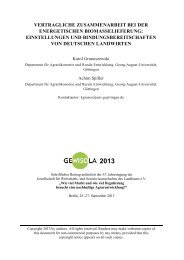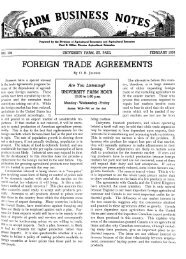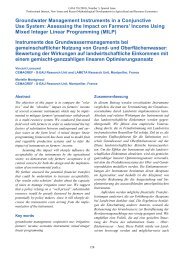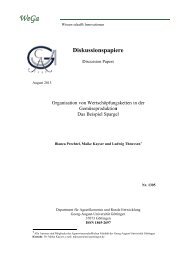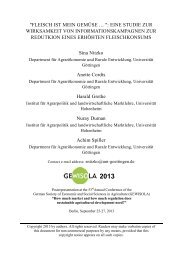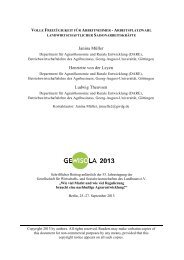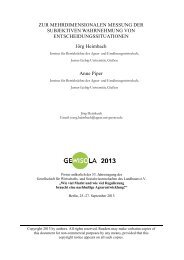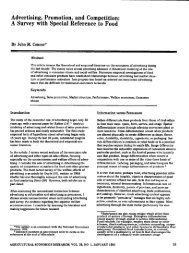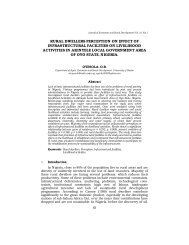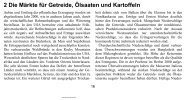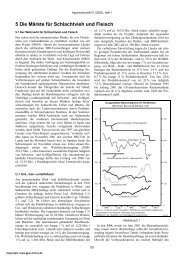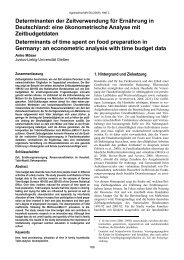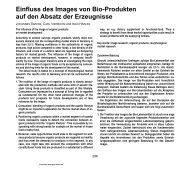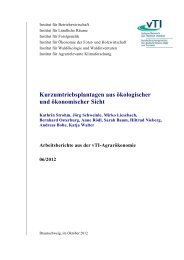District Institutes of Education and Training - Teacher Education
District Institutes of Education and Training - Teacher Education
District Institutes of Education and Training - Teacher Education
You also want an ePaper? Increase the reach of your titles
YUMPU automatically turns print PDFs into web optimized ePapers that Google loves.
<strong>District</strong> <strong>Institutes</strong> <strong>of</strong> <strong>Education</strong> <strong>and</strong> <strong>Training</strong>: A Comparative Study in Three Indian States<br />
6.4.2 ‘Power-coercive’ <strong>and</strong> ‘pedagogical-authority’ approaches to change<br />
The tension expressed by DIET staff about their lack <strong>of</strong> administrative power over<br />
teachers is mirrored at the Cluster level. Traditionally, teachers have been guided<br />
by inspectors, who have administrative powers over teachers <strong>and</strong> can therefore<br />
adopt a power-coercive approach to change: an <strong>of</strong>ficer uses power to ‘persuade’ a<br />
teacher. Unlike the inspectors, academic leaders at the Cluster or Block Resource<br />
Centre does not have powers to punish or reward a teacher.<br />
The idea <strong>of</strong> the Cluster Resource Centre is that the lead teacher facilitates exchange<br />
<strong>of</strong> good practices among peers, <strong>and</strong> supports learning how to analyse practice by<br />
constructive problematisation, reflection <strong>and</strong> peer problem-solving. In this model,<br />
authority does not derive from power, but from demonstrable pedagogical<br />
competence – a pedagogical-authority approach. In terms <strong>of</strong> teacher development in<br />
general, a pedagogical-authority approach <strong>of</strong>fers a greater likelihood <strong>of</strong> teachers<br />
internalising change messages, rather than just being superficially compliant; but<br />
in practice it has <strong>of</strong>ten been hard to make this strategy work with teachers. Across<br />
the study sites, in DPEP <strong>and</strong> non-DPEP <strong>District</strong>s (except Udaipur), Cluster<br />
Resource Centre staff reported that they felt constrained by:<br />
• A perceived lack <strong>of</strong> ‘legal’ authority so there are no sanctions for teachers who<br />
ignore their advice. This makes many Cluster Resource staff feel that their visits<br />
to such schools ‘don’t make any difference as teachers don’t take any notice <strong>of</strong><br />
what we say’.<br />
• A lack <strong>of</strong> confidence in their own academic abilities, particularly in relation to<br />
lack <strong>of</strong> content knowledge in the upper primary St<strong>and</strong>ards <strong>and</strong> an inadequate<br />
grasp <strong>of</strong> child psychology.<br />
Gaps in these areas may mean they cannot answer teachers’ questions <strong>and</strong> this<br />
undermines the Cluster Resource Centre role. Where there are real gaps in the<br />
academic monitoring <strong>of</strong> classrooms, Cluster staff ’s practical resolutions <strong>of</strong> these<br />
concerns have led to a trend in which they tend to involve themselves in<br />
administrative monitoring tasks which are more appropriately done by inspectors.<br />
In discussions with the research team, they emphasised their view that unless<br />
Cluster Resource Centre staff are empowered by the legal m<strong>and</strong>ate that inspectors<br />
have, ‘making’ teachers change would continue to be very challenging. This was a<br />
concern for DPEP <strong>of</strong>ficials, as one reported: ‘CRC’s role is academic monitor.<br />
CRCs do not know their role, or if they do know it they don’t accept it. So they<br />
perceive themselves as supervisors who gather data to feed upwards’ (GUJ/SNT<br />
DPEP i/c 14.12.00).<br />
Focus group discussions with Block <strong>and</strong> Cluster Resource Centre staff in<br />
Santrampur <strong>District</strong> in Gujarat for example revealed a matrix <strong>of</strong> concerns<br />
DFID 125



